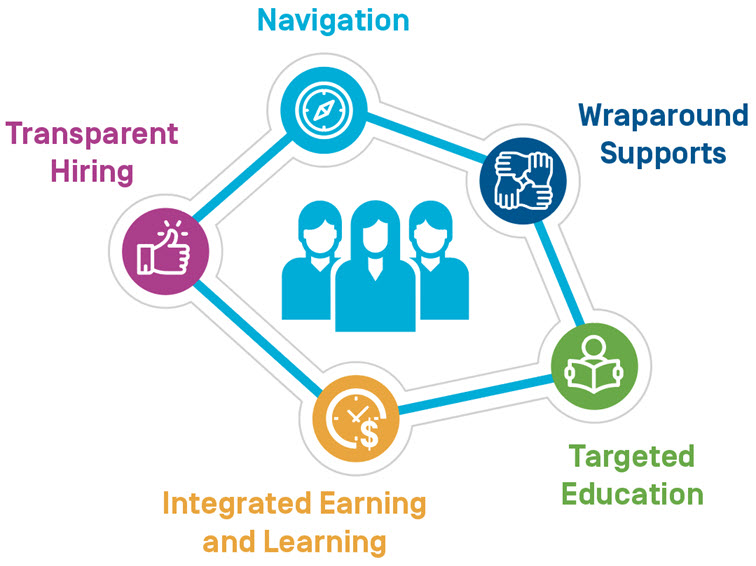GS01 Future of Work Panel
Panelists: Donald H. Taylor, Megan Torrance, Debbie Richards, Bob Mosher, Frank Nguyen
My takeaways:
- Don’t overcomplicate things. This quote seriously cracked me up, “This sounds like a solution looking for a problem.”
- Some of the roles in future L&D teams in the order of importance: Data Analyst, Data Engineer, Business Intelligence Engineer, and Research Scientist.
- Data should not just be used for reporting, it should tell a story to inform you what to explore.
- What is L&D’s role in emerging needs like wellness (which is traditionally an HR function)?
- L&D should play a role but not pretend to be experts.
- Listen to what the needs are.
- Offer L&D’s strengths/value-add, which is that we can reach people!
(Confession: My notes from this section is limited as I was getting really tired…)
GS01 Long Life Learning: Preparing for Jobs That Don’t Even Exist Yet
Keynote Speaker: Michelle Weise, Vice Chancellor of Strategy and Innovation, National University System
My takeaways:
- Every year, the average life expectancy goes up by 3 months. Science predicts that the person that will live till 150 is already born (!!!) This means that we will have longer careers generation after generation.
- In 2014, the Top 5 jobs that year were ones that didn’t even exist 5 years ago. We will have 20-30 job changes throughout the span of our now extended career.
- When people start their career underemployed, it is not a short-term phenomenon, but a permanent detour. Research shows that they earn $10,000 less per year and are 5 times more likely to still be underemployed 5 years later. This not only impacts pay, but network/access.
- For college grads, by their 3rd job they will likely eventually end up in a high pay/high skill job. But the struggle is learning to verbalize and reframe their skills for the labor market.
- The future of work are people with a modified “T” skill framework, but with more human skills and a few areas of technical expertise.”T” Skill Framework:

- Everyone has unique “skill shapes”. How do we go from education/experience-based hiring to skill-based hiring, to give a broader group of people a chance to prove their competency?
- How can our industry support this? Navigation, Wraparound Supports, Targeted Education, Integrated Earning and Learning, and Transparent Hiring.

If any of this peaks your interest, feel free to reach out! I am happy to have a knowledge share/discussion after the conference.

